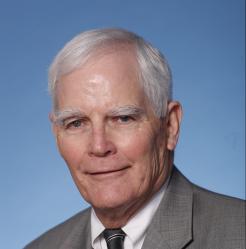
Voters deserve thoughtful and informed answers from the presidential candidates about how to address the nation’s challenges, and candidates need to go beyond criticism of existing policies or an opponent’s views and provide instead some specificity on their own positions and be held accountable when they mislead the public with half-truths or pure rhetoric, according to Brookings Senior Fellows Ron Haskins and Isabel Sawhill.
In a new volume, “Eight Big Issues the 2016 Presidential Candidates Should Address,” Haskins and Sawhill pick eight top issues they believe should be the focus of the upcoming campaign, noting that “a presidential election is a good time to catalyze a national conversation on the issues of the day.” In spite of the fact that many are skeptical about whether campaign promises mean much, most candidates take their campaign promises seriously, with research showing that presidents from Woodrow Wilson through Jimmy Carter kept their word on about 75 percent of their campaign promises, they note.
The eight papers in the volume were written by a group of scholars organized 10 years ago by Brookings and other organizations as part of “the fiscal seminar,” which was formed to bring attention to the need to reduce the nation’s deficits and debt. However, Haskins and Sawhill decided to expand the scope of the project to include additional issues that should be tackled by every 2016 presidential candidate.
Read about the eight big issues
Policies that enhance economic growth
Looking at the candidates’ ideas for overall economic growth, the Urban Institute’s Rudolph Penner questions whether the economy could grow at 4 percent annually, saying it “would be no easy trick” and even if it could be accomplished, it would only be possible for a brief period given the slowdown in the number of hours worked and the accumulation of physical capital stock.
November 18, 2015, Rudolph G. Penner
Looking specifically at taxes, Brookings Senior Fellow William Gale and Research Assistant Aaron Krupkin write that the U.S. does not have a good tax system that raises the revenues needed “to finance government spending in a manner that is as simple, equitable, and growth-friendly as possible.”
November 18, 2015, William G. Gale and Aaron Krupkin
Why the federal debt must be a top priority for the 2016 presidential candidates
One issue above all others that remains a problem and should transcend partisan agendas is the unsustainable projected growth of the federal debt, write Bob Bixby of the Concord Coalition and Maya MacGuineas of the Committee for a Responsible Federal Budget. They warn that while candidates “may be tempted to conclude that our fiscal problems are behind us, that would be a mistake.”
November 18, 2015, Robert L. Bixby and Maya MacGuineas
Health policy issues and the 2016 presidential election
Focusing specifically on health care, the Urban Institute’s Robert D. Reischauer and Brookings Senior Fellow Alice M. Rivlin write that there are three main health care issues the candidates should focus on.
November 18, 2015, Robert D. Reischauer and Alice M. Rivlin
U.S. defense strategy and the defense budget
On defense, the presidential candidates should spell out the spending level they would seek as well as details about how the money would be spent – but there are no cuts to be had, according to Brookings Senior Fellow Michael O’Hanlon.
November 18, 2015, Michael E. O’Hanlon
Avoiding another big financial crisis
While the politics are treacherous, the next president cannot avoid financial reform, so the candidates shouldn’t avoid the topic during the campaign, writes Hutchins Center on Fiscal and Monetary Policy Director and Brookings Senior Fellow David Wessel.
November 18, 2015, David Wessel
An agenda for reducing poverty and improving opportunity
With the U.S. poverty rate stuck at around 15 percent for years, it’s clear that something needs to change, and candidates need to focus on three pillars of economic advancement—education, work, family—to increase economic mobility, according to Brookings Senior Fellow Isabel Sawhill and Senior Research Assistant Edward Rodrigue.
November 18, 2015, Isabel V. Sawhill and Edward Rodrigue
What the presidential candidates need to know about infrastructure: issues and options
In spite of the current political and fiscal environment, presidential candidates should suggest a reallocation of infrastructure responsibilities within our system of federalism to help close the infrastructure gap, which has been plagued by underinvestment and is in dire need of upgrading and modernization, according to Brookings Senior Fellows William Galston and Robert Puentes.
November 18, 2015, William A. Galston and Robert Puentes
The Brookings Institution is committed to quality, independence, and impact.
We are supported by a diverse array of funders. In line with our values and policies, each Brookings publication represents the sole views of its author(s).




